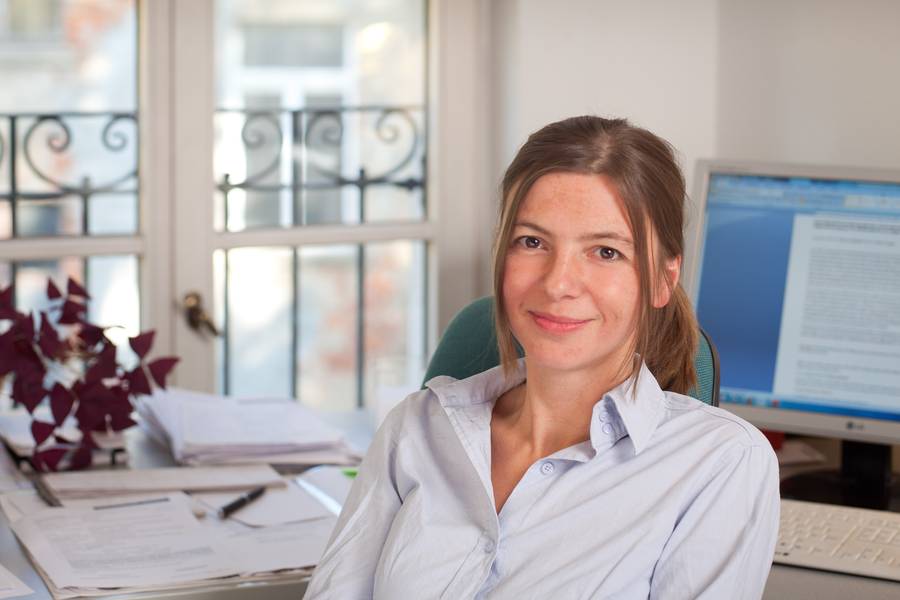Emerging Topics – Insights from “Behind the Scenes”
Interview with Martina Keilbach (Graduate School Global and Area Studies, Leipzig U)
Publication Date
April 2017
Language
English
Type
Media
Blog Author
Martina Keilbach
Which topics are currently debated in the academic and scientific community, which ideas are contemplated, tried out, and discussed? Which questions do transregional studies tackle at the moment? Which fields are expanded and which aspects will be central in the emerging research?
Our new series “Emerging Topics – Insights from ‘Behind the Scenes’” puts the spotlight on current issues within transregional research. By highlighting selected recent and upcoming workshops and other academic events, we are bringing into focus current debates within the field of transregional studies.

Today, we put the spotlight on the fifteenth summer school of the Graduate School Global and Area Studies, Leipzig U/seventh Flying University in Transnational Humanities, “Making and Changing Spaces of Action under the Global Condition”. The summer school will take place from 12 to 15 June 2017 in Leipzig. Here you can find the call for papers. The submission deadline is Sunday, 30 April 2017.
Our guest is Martina Keilbach, scientific coordinator of the Graduate School Global and Area Studies at the University of Leipzig. Below she will give some insights into the ideas behind the summer school.
Questions
The summer school invites contributions looking at how societies across the globe react to the “global condition” and the unavoidability of connectivity, including entanglements from the global, transregional, and transnational to the regional and local levels. What makes the spatial perspective – analytically captured as “spatial formats” – so helpful for exploring these questions?
Space is a central resource in global processes, or perhaps even “the” central resource. We understand spatialization as the central dimension of social action, so spaces or analytically spatial formats are made by people and their actions (or imaginations). The topic of the summer school reflects the interest in actors or groups of actors and in the question about who makes and changes spaces – always with the amendment “under the global condition”. For example, we have a panel within the summer school that would like to investigate the increase of conflicts and violence in urban areas. This local or regional dimension can only be satisfactorily analysed, taking into account global, transregional and national entanglements. This approach follows our finding – and certainly our mantra – that de-and reterritorialization occur simultaneously and are mutually dependent.
In the call for papers, you say that rather old fashioned spatial formats, such as the protectionist nation state, are gaining prominence again. Does this mean that connectivity is avoidable after all? Why can these moments be particularly interesting for the study of global and transregional processes?
We can observe in almost each period the need for revival of clearly delineated areas and the associated notion of autonomy and control. The current debate about Brexit or Trump’s campaign, “America first”, shows this exemplarily. These countermovement responses among other things to the dynamic of transnational or global flows of people, capital, ideas, etc. The question here is: Is it a regression to old and old-fashioned orders, or does it not create a new order by means of respatialization, which is the result of the efforts to control these cross-border processes and flows. Even though obviously the desire for the reactivation of the old-order “national state” is in the foreground.
The summer school invites contributions from international PhD students in the social sciences including various disciplines as well as area studies perspectives. This is a broad focus. How do you ensure that young scholars will be able to have a fruitful exchange? Or, put differently, what are the unique perspectives and insights PhD students will gain from participating in the Leipzig summer school?
It is precisely through the collaboration and interplay of the different disciplines in the humanities and social sciences that the question of processes of spatialization under the global condition and their actors becomes exciting. It is now the fifteenth summer school, which we organize primarily for the graduate school members and provide, thereby, not only the opportunity to let the various disciplines talk to and learn from each other, but also to get an opportunity to see what is happening at other places of the world and how is the question about space-making here approached.
This year, for the second time, we have the great chance to host our summer school in cooperation with the Flying University in Transnational Humanities (FUTH), which was established by the Eastern Europe historian Jie-Hyun Lim (Sogang University, South Korea). The aim of FUTH is also to fostering critical understandings of global and transnational connections and interactions within the humanities and social sciences.
What kinds of discussions do you want to encourage and what would be an ideal outcome of the summer school?
We want to encourage a debate beyond the boundaries of the disciplines focusing the actors and groups, which are involved in processes and practices of spatialization with the goal to find a common understanding for the concepts. In the best of all worlds, the ideal outcome would be on the one hand, that all participants, with the help of what was heard and debated during the summer school, would advance their individual research projects, i.e. their dissertations. On the other hand, it is a desirable result that the presented projects and discussions help to illuminate spatial formats and their emergence, but also to uncover practices and processes through which spatial arrangements are created, maintained, and subverted.